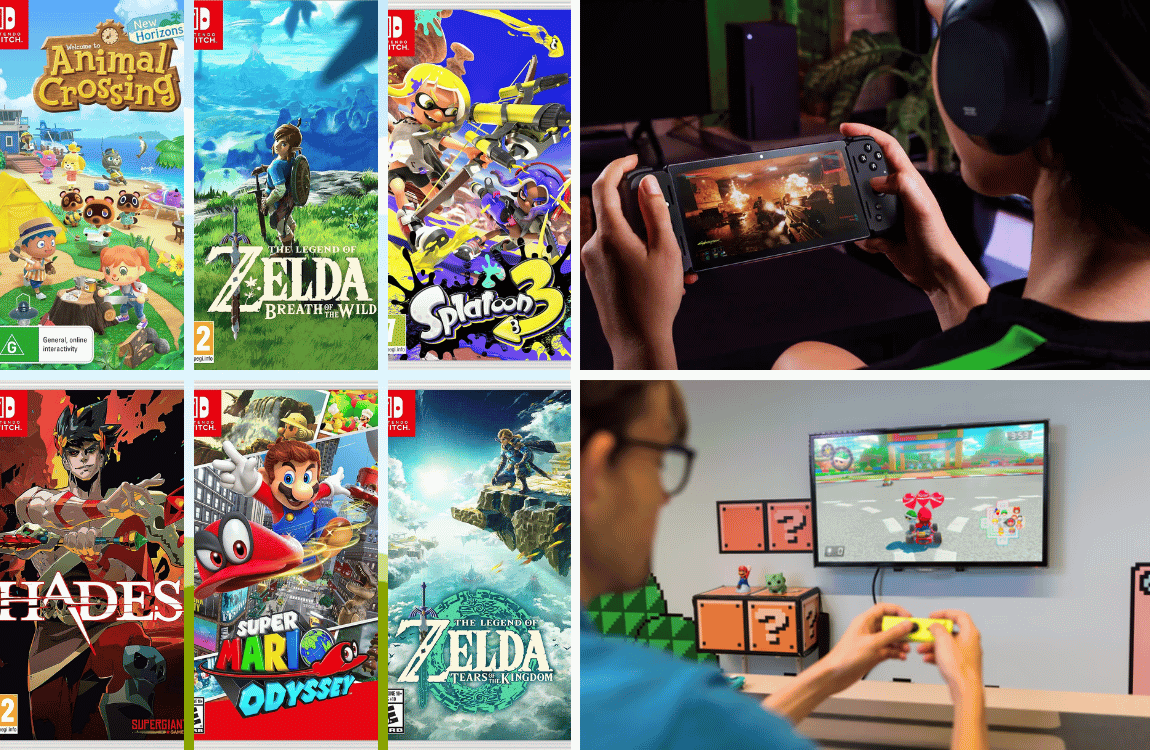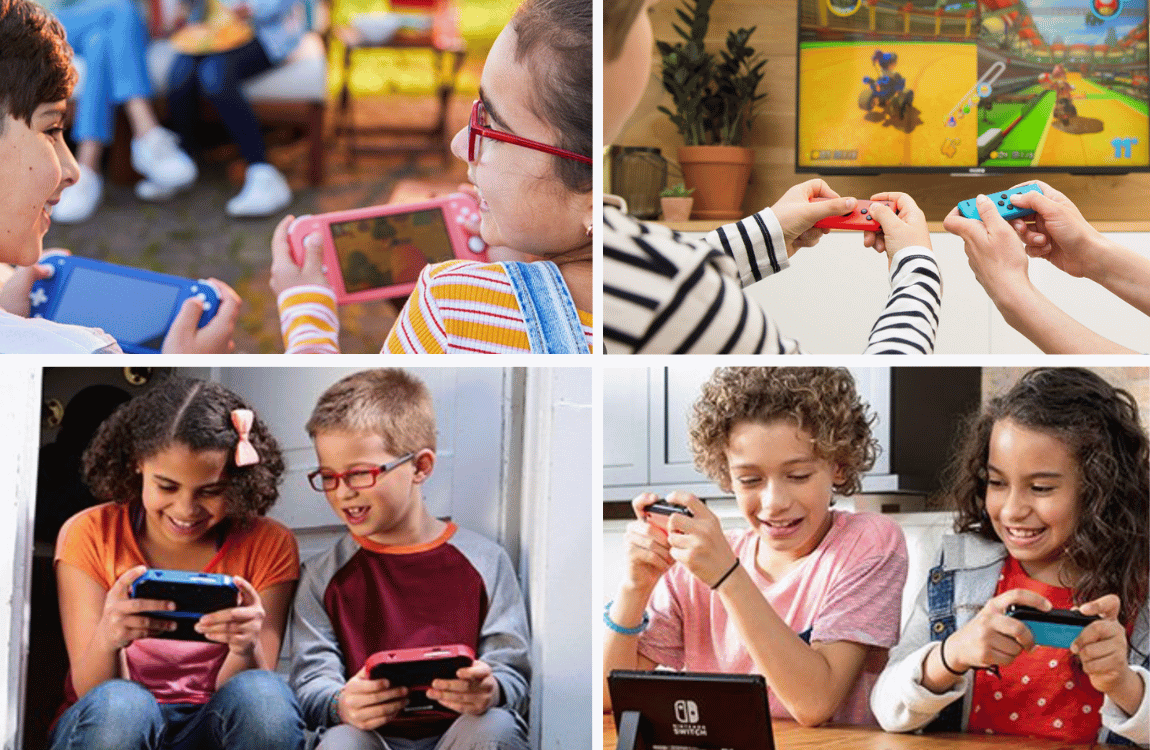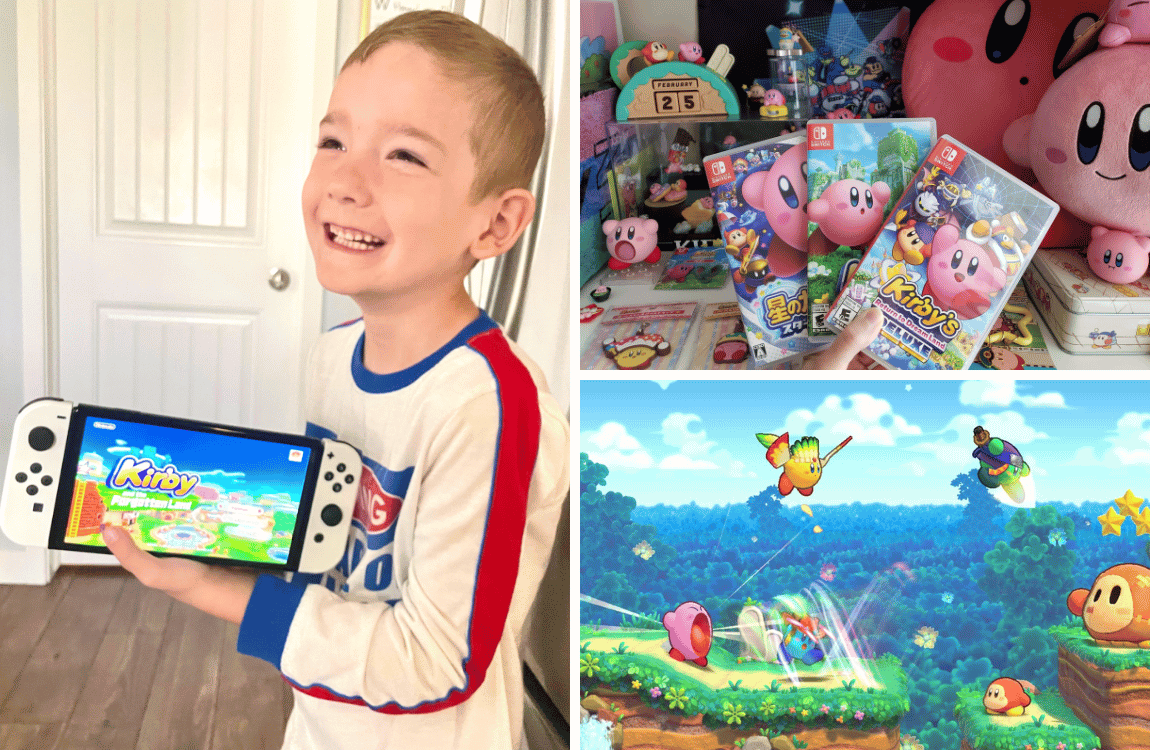Oh the struggle between allowing them to play and not having it take over their entire free time. You may be wondering what is the correct amount of time you should allow and how do you stop them?
Key Takeaways:
Gaming Time for Children
In the digital age, computer games have become a staple in the lives of many children. As a parent, it's essential to understand how to balance this activity with other aspects of life.
This article will delve into the recommended time on computer games for children, the benefits of gaming, and how to effectively monitor kids' gaming habits.

The Recommended Daily Gaming Time
The American Academy of Pediatrics suggests that children should have consistent limits on the time spent using media. This includes time on computer games, which should not interfere with adequate sleep, physical activity, and other behaviors essential to health.
Benefits of Gaming for Child Development
Contrary to popular belief, there are several benefits to playing video games that can contribute to a child's cognitive and social development.
These include problem-solving skills, hand-eye coordination, and the ability to work collaboratively in multiplayer settings.
Gaming can also help children develop critical thinking skills and can even spark an interest in technology and computer programming.

Setting Boundaries for Gaming
It's crucial for parents to establish clear rules for game time and set reasonable limits. This might include setting aside specific hours to play video games and ensuring that it doesn't conflict with homework, chores, or family time.
Utilizing a Video Game Time Tracker
One effective strategy to manage children's gaming time is to employ a Video Game Time Tracker like the one below. There are several apps and software available designed to help parents monitor and control the amount of time their children spend gaming. You could even find a free pdf on google!
These tools can set limits on gaming time, block access to certain games during homework or bedtime, and even provide reports on which games are being played.
A video game time tracker can be a valuable tool for parents to ensure a balanced digital diet for their children.

Age-Appropriate Gaming Considerations
The appropriate amount of gaming time can also depend on a child's age. Younger children may require stricter limits compared to older kids who can handle more screen time responsibly.
In addition you need to ensure they only play video games suitable for their age. If they play games that are too violent or complex, it can frighten them or cause frustration and result in a negative gaming experience.
Sometimes, the video game characters can be really scary, even for adults who don't like that sort of thing. Stick to games like Mario Kart and Kirby for the little ones.

Best Kirby games
The Role of Parental Control in Gaming
Parental control tools are invaluable for managing the time children spend on computer games. These tools can help limit access to games outside of agreed-upon times and ensure that content is age-appropriate. They can also track and monitor online activities to ensure children are not exposed to inappropriate content or interactions.
Not sure how to do that? Here's a helpful video on how to set up these controls on the Nintendo Switch.

Balancing Video Gaming with Physical Activity
It's important to balance time on computer games with physical activity. Encouraging children to engage in sports or outdoor play can provide a healthy counterbalance to sedentary gaming time.
Go to the park, play some soccer, go on a bike ride or walk the dog. These are all good ideas for kids to do.
And if it's raining outside, there's plenty of fun indoor activities they can do too.

The Impact of Gaming on Sleep Patterns
Excessive gaming, especially before bedtime, can disrupt a child's sleep pattern. Parents should encourage a wind-down period without screens before sleep to promote better rest.
Educational Games and Learning
Not all screen time is created equal. Educational games can be a valuable tool for learning and development, often making the time spent on them more justifiable.
A lot of games require counting, problem solving and memory skills. Choose the games you want them to play for different days maybe.
Multiplayer Games and Social Skills
Multiplayer games can offer social benefits, allowing children to interact with peers and learn teamwork and communication skills in a virtual setting. However, it's essential to monitor these interactions and ensure they are positive and safe for all participants.
Gaming is great not just for kids but for families too. Parents can enjoy gaming with their kids and make it into a fun time for all.

Co-playing can be a way for parents to bond with their children and understand the games they are playing, as well as to monitor the content firsthand.
Even if you aren't a fan of gaming, give it a go and make asure you think the content is suitable. You may even enjoy it.

Age Ratings for Nintendo and Playstation Games
Age ratings for video games are determined by organizations such as the Entertainment Software Rating Board (ESRB) in the United States, Pan European Game Information (PEGI) in Europe, or the Computer Entertainment Rating Organization (CERO) in Japan, among others. These ratings are designed to provide guidance about the suitability and content of a game for different age groups.
For Nintendo and PlayStation games, ratings can range from:
- E for Everyone: Suitable for all age groups. The game contains minimal cartoon, fantasy, or mild violence and infrequent use of mild language.
- E10+ (Everyone 10 and older): Suitable for ages 10 and up. The game may contain more cartoon, fantasy or mild violence, mild language, and minimal suggestive themes.
- T for Teen: Suitable for ages 13 and up. The game may include violence, suggestive themes, crude humor, minimal blood, simulated gambling, and/or infrequent use of strong language.
- M for Mature: Suitable for ages 17 and up. May contain intense violence, blood and gore, sexual content, and/or strong language.
- AO for Adults Only: Suitable only for adults ages 18 and up. May include prolonged scenes of intense violence, graphic sexual content, and/or gambling with real currency.
Parents should always check the game's rating before allowing their children to play it to ensure they are not exposed to inappropriate content.

Age limit for Nintendo Switch
Gaming as a Reward System
Using gaming time as a reward for completing tasks or good behavior can be an effective way to manage time spent on games. This can also teach children the importance of balancing responsibilities and leisure activities.
Alternatively, accomplishing weekly chores could earn them an extended gaming session on the weekend.
This approach not only incentivizes good behavior and responsibility fulfillment but also helps to instill a sense of balance in the child's life. It clearly communicates that gaming is a leisure activity that comes after fulfilling daily duties and responsibilities.

Ensuring Age-Appropriate Interactions in Online Gaming
In the realm of online games, it's not only crucial to monitor the amount of time children spend playing, but it's also of paramount importance to ensure they are not interacting with individuals who are much older. This is because such interactions could potentially expose children to inappropriate conversations or content.
Parents should make use of available parental controls to restrict access to certain chat features and monitor friend requests. It's recommended that parents have open and regular conversations with their children about their online interactions, emphasizing the importance of interacting only with peers and people they know personally.
This not only ensures a safe gaming environment but also contributes to a positive online gaming experience for the child when playing video games.
It's not uncommon for children to want to play games that their friends are playing, especially if they have been exposed to them at a young age. However, it's important for parents to stick to their rules and guidelines regarding age-appropriateness and content.
If your child asks for an M rated game, explain why it's not suitable for their age.
The Importance of Breaks During Gaming
Encouraging regular breaks during gaming sessions can help prevent eye strain and maintain a child's overall well-being. Healthier video game habits such as parents to set an alarm or reminder for their child to take breaks every hour or so. During these breaks, encourage your child to engage in physical activity or social interactions with family members.
Fun Ways to Encourage Breaks During Gaming
Encouraging children to take regular breaks from gaming can be made into a fun and enjoyable process. Here are some effective strategies:
- Timed Challenges: Implement a system where every 30 minutes of game play is followed by a fun, timed challenge. This could be a quick physical exercise, a brief session of a different hobby, or even a household task. Make it into a fun game where they have to beat their previous time or score.
- Reward System: Reward children with extra game time or other incentives for taking regular breaks. This could be as simple as a sticker chart where they earn a sticker for every break taken, working towards a larger reward.
- Active Games: Consider incorporating active video games into your child's gaming routine. These require physical movement and can serve as natural breaks from sedentary gaming.
- Co-Play Breaks: Plan breaks where you can join in and play a quick game or activity together. This not only mandates breaks but also fosters bonding and ensures that gaming time doesn't always mean isolation.
- Creative Breaks: Encourage breaks that stimulate creativity such as drawing, painting or crafting. This gives the child's eyes a break from the screen and gives them an outlet to express their creativity.
Remember, the goal is to create a balanced gaming culture that prioritizes the child's overall well-being. With these fun break strategies, gaming can remain an enjoyable part of their routine without compromising their health.
Gaming and In-Game Purchases
Parents should be vigilant about in-game purchases and set up necessary controls to prevent unauthorized spending.
This can prove a very expensive mistake if you don't put controls on their spending abilities.
Strategies for Reducing Gaming Time
If gaming time needs to be reduced, parents can introduce gradual changes to the schedule rather than abrupt restrictions.
For example, start by reducing gaming time by 30 minutes on weekdays and allow the child to earn back that time through completing tasks or chores. This approach is more sustainable and can help alleviate any potential conflicts over gaming limitations.
The Importance of Setting a Good Example
Children often mimic their parents' behavior, so it's crucial for parents to set a good example when it comes to managing their own screen time and balancing responsibilities with leisure activities. This not only promotes healthy habits but also reinforces the importance of balance in daily life.

The Future of Gaming and Children
As technology evolves, so will the nature of gaming. Parents must stay informed about trends and the implications for their children's gaming habits. It's essential to continue to prioritize balance and responsible management of screen time, while also remaining open to new forms of gaming that can positively impact a child's development. As long as there is a healthy balance, video games can remain an enjoyable and beneficial part of a child's life. So, parents should not be afraid to embrace the positive aspects of gaming for their children.

Summary for Kids Gaming Times
Balancing a child's time on computer games is a multifaceted challenge that requires a nuanced approach. By setting clear boundaries, understanding the benefits of gaming, and using parental control tools, parents can ensure that their children enjoy gaming in a healthy, controlled manner.
It's about finding a middle ground that allows children to reap the benefits of gaming while still engaging in a variety of activities that contribute to their overall development.
Gaming Time For Kids FAQs
What is the recommended amount of gaming time for children? A: While there is no one-size-fits-all answer, the American Academy of Pediatrics suggests that children aged 6 and older should have consistent limits on screen time, including games, that do not interfere with sleep, physical activity, and other healthy behaviors. On school days they should have 1 hour and weekends 2 hours.
How can parents monitor their children's video game playing? A: Parents can use parental control tools to manage and monitor the time their children spend on computer games. These tools can restrict access to games during certain hours and ensure that children are playing age-appropriate games.
Are there any benefits to children playing computer games? A: Yes, there are several benefits of gaming. A child who plays video games develops of cognitive skills like problem-solving and hand-eye coordination, as well as social skills through multiplayer games. However, these benefits should be balanced with other activities and responsibilities.
How can parents encourage their children to engage in other activities? A: Parents can incorporate fun and interactive strategies, such as timed challenges or co-play breaks into their child's gaming routine. They can also introduce a reward system for taking regular breaks and offer alternatives to screen time, such as physical activity, creative projects, or social interactions with family.
The Impact of Gaming Systems on Mental Health
The influence of gaming systems on mental health is a complex and multifaceted issue. On one hand, gaming can offer a means of escape, stress relief, and a platform for social interaction. It can also promote cognitive development, enhancing skills such as problem-solving and hand-eye coordination.
However, excessive gaming can lead to addictive behaviors, causing negative impacts on a person’s mental health. This could manifest in various forms such as social isolation, mood disorders, or sleep disturbances. Moreover, certain games might expose players to violent or aggressive content, which could potentially influence their behavior and emotional health.
Parents and caregivers need to regulate the duration and quality of gameplay to ensure a balanced and healthy gaming environment. Regular breaks and diverse recreational activities should be encouraged to mitigate potential negative impacts on mental health from electronic media. The key lies in striking a balance that allows gamers to enjoy the benefits of gaming while preventing potential adverse effects on their mental health.
More Video Gaming Reads

Best Switch games

Best Switch games for couples











